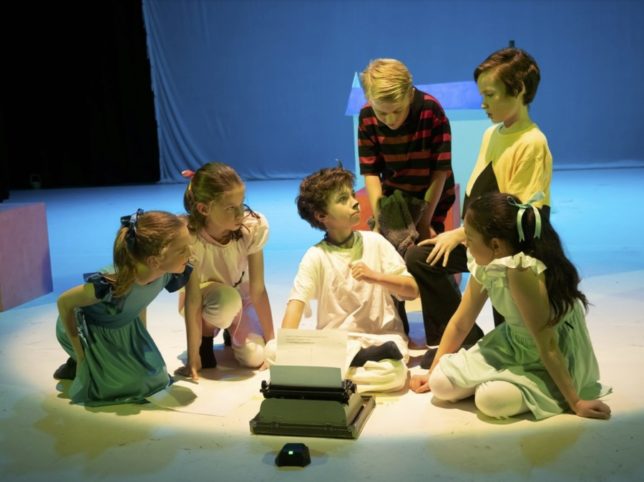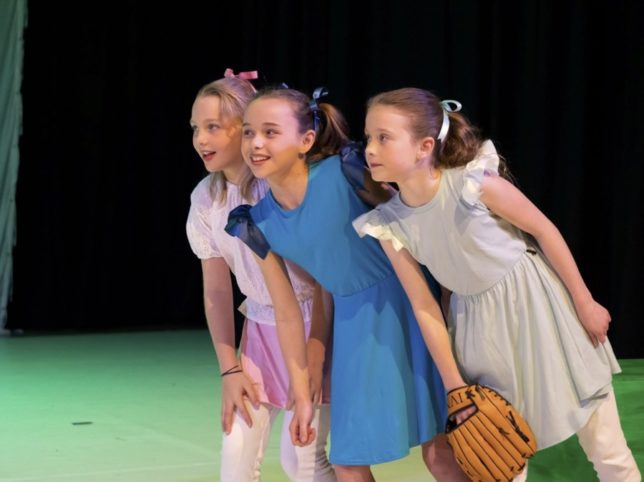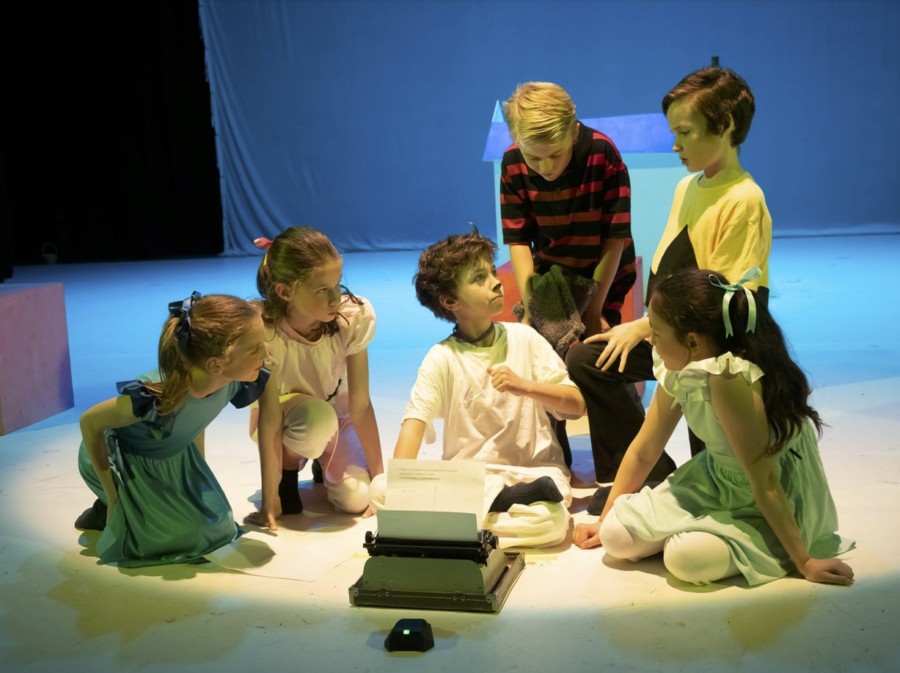By Ben Evans, Headmaster at Windlesham House School
As the Autumn terms sets in and the impending glimmer of the festive season is now in sight, schools are having to become even more creative this year as they begin to plan for annual shows and performances, in a way they might never have imagined. School performances have always been an integral part of learning and development and they are a huge part of school culture too. Live performances in particular, can instil confidence, build resilience and foster essential learning and listening skills.
Of course ‘taking to the stage’ has always gone hand in hand with performing to an audience, be it parents, children, teachers, local community etc. Socially, children enjoy being part of something bigger than themselves (although not necessarily being the centre of attention), so working in groups, reacting to others, dressing up in costumes, singing and dancing really does lift the spirits and provides the fun and enjoyment that children so need right now.
Performing in front of others can improve self-esteem and self-worth, particularly if the child has confidence issues or often struggles academically in the classroom. But how can schools ensure children still benefit from the value of performing while adhering to the all-important guidelines? Surely if we remove all of the elements that make performing to a physical audience so special for young children, we run the risk of diluting the whole point of putting on a performance? The key is to find a balance or a scenario that works and that will depend very much on environment.

Finding a balance that works
There is a balance between making sure everyone stays safe and running a show that still allows children to develop their performance skills and have fun. Schools with larger grounds may consider the possibility of hosting special outdoor performances this year (weather and facilities permitting), with staggered ‘class bubble’ performances, with social distancing or pre-booked time slots for parents. For others with larger sports halls, the same applies. Some schools will naturally look to advances in technology to provide live-streamed performances but delivered to families remotely in their homes.
Schools may also consider recording the production and producing a film for parents. This has the added benefit that it can be rehearsed and produced over a longer period of time, adhering to the necessary year group bubbles and is not reliant on an end production, mixing bubbles and with an audience present. It can be kept by parents for posterity and produced to a high standard using easily accessible programmes. Audience or no audience, one thing is for sure, children will still benefit physically and mentally from working together to create a memorable performance this year.
Organising a school performance can inspire self-confidence in individual pupils, it helps to support collaborative working and learning not to mention promoting the ability to listen carefully, engage and follow instructions. Children will watch and learn from others via stage presence and through talking to an audience (voice projection), their general awareness, memory, reading and comprehension skills will be increased as they begin to understand the script they have been given.

Reward and enjoyment
Performing usually pushes some children out of their comfort zone but there is also the reward and enjoyment of success when a performance goes well. Regardless of audience presence, physical co-ordination is also a great benefit of performing at school. Children will be moving about the stage/acting creating movements and given the ability to speak and be heard.
With that in mind they will also find they learn to control their excitement and emotions too; listening skills and acting on instructions are vitally important and involves a good level of concentration if the production is to be successful.
Performance allows children to learn in a different setting and teaching is therefore catering to different learning styles too. Rather than formal written exercises, you are still looking for comprehensions skills, high-level inference and interpretation as well as listening and following instructions. All of these are essential skills but during a performance children will learn these without even realising.
Quieter children who beaver away in the classroom may appear reticent when being asked to perform but handled sensitively, this is an excellent opportunity because they are being taken out of their comfort zone and are encouraged to be risk takers, developing their resilience and ‘grit’. Some believe that performance is a soft skill because there are no pages of writing to assess but this is a misconception. All these valuable skills are fully transferable to the traditionally ‘academic’ subjects of maths, English and science and will ensure greater progress and higher attainment for children across the curriculum.

Boosting the learning experience
Rather than becoming fixated on the ‘absence of an audience’, schools should be looking at other ways that this year’s performances can boost other aspects of learning. For example how to translate these skills into lesson time assessing and monitoring pupils’ character traits and attitudes such as creativity, resilience, teamwork, self-control, adaptability, respect and motivation.
All too often, this doesn’t happen in schools but performance is one area where evidence of them, or lack of, will become apparent. Schools can track pupils’ progress and development and target those children who need additional opportunities to thrive. As with so many aspects of providing a normal school experience for children during the COVID environment, it is important not to meet problems and difficulties half way!
We all know from our own childhood experiences, that performing in front of an external audience is something special and something to aspire to. It makes all the hard work worthwhile, when children see their parents in the audience and enjoy the fierce applause and admiration. This year is different and we have to view this an opportunity to think outside of our usual processes and to try things in a different way.
Not just for Christmas
Many schools say they have made changes for the better since the pandemic, changes that they will now stick with long term, simply because they work better. This may not be the case for school performances, but it does provide scope for the imagination.
How can we do things differently and still deliver that all-important buzz of excitement that comes with a school performance? Perhaps another lesson to take is that performance is not just for Christmas, it can and should be a regular occurrence throughout the year, be it a class based assembly or full blown production. That way, children have opportunities all year round to build their skills and develop confidence and self-esteem. Creating small drama groups to perform small studio performances (with or without an external audience), poetry recitals, debates and group presentations are all great ideas too and fit well with the current learning bubbles and restrictions.
About the expert
Ben Evans is Headmaster at Windlesham House Prep School in West Sussex (an independent day and boarding school for boys and girls aged 4-13 years). Prior to Windlesham, having spent eight successful years as Headmaster at Hertfordshire prep school, Edge Grove, and prior to that, as Head of The British School in Colombo, Sri Lanka, Evans is passionate about learning and about providing a unique educational experience that goes far beyond the delivery of the simple curriculum. Find out more at www.windlesham.com

